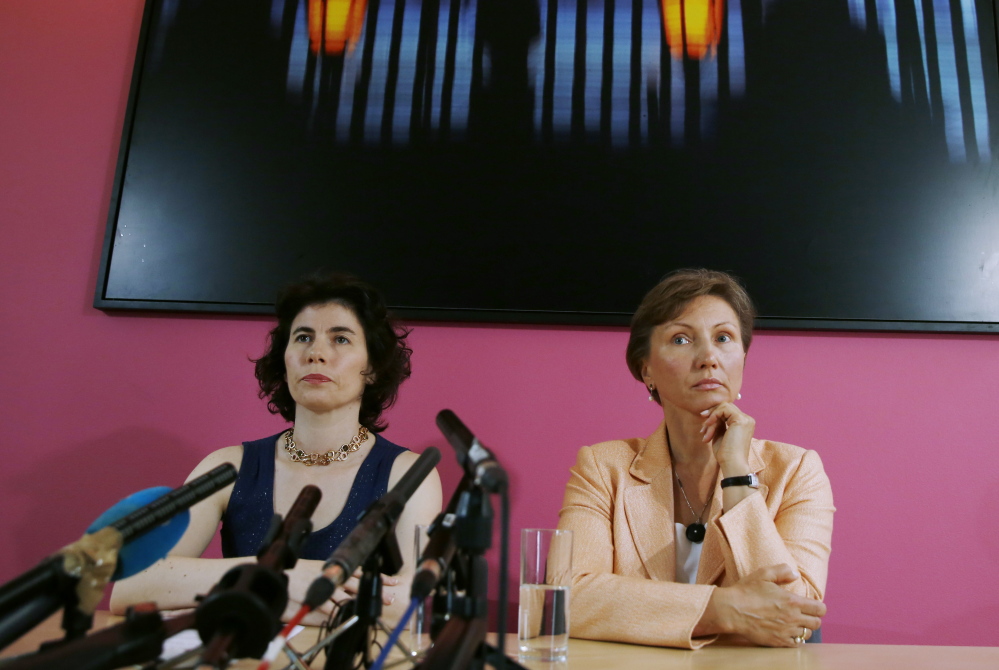LONDON — The British government announced plans Tuesday for a wide-ranging public inquiry into the mysterious 2006 death of poisoned former Russian agent Alexander Litvinenko.
The decision, which comes at a time of rising tensions with Russia, is a breakthrough in the much-delayed probe because it means investigators can look into whether the Russian state was involved in Litvinenko’s death.
A former officer in the Russian intelligence service, Litvinenko fell out with the Russian government and became a strong critic of the Kremlin. He came to Britain in 2000 and obtained political asylum.
Litvinenko died in 2006, aged 43, after drinking tea laced with polonium-210 at a London hotel.
His death remains a mystery. On his deathbed, Litvinenko accused Russian President Vladimir Putin of responsibility. The former agent’s family believes the Kremlin ordered his killing.
Britain identified the two Russians who met Litvinenko for tea – ex-KGB agent Alexander Lugovoi and Dmitry Kovtun – as prime suspects. Both denied responsibility. British prosecutors charged Lugovoi with murder, but Moscow refused to extradite him.
Questions were also raised about whether British security officials could have done anything to prevent the death. Lawyers for Litvinenko’s family said he was working for Britain’s intelligence service, MI6.
British authorities initially delayed an inquest because they believed they could bring criminal prosecutions against the two Russian suspects.
But when the inquest finally began it was riddled with problems because much of evidence was deemed too sensitive to disclose to the public. The coroner, Robert Owen, reluctantly accepted a British government request to bar the inquest from considering evidence relating to Russia’s alleged role because of national security concerns. Evidence relating to Litvinenko’s alleged relationship with MI6 was also off the table.
The British government has resisted calls for a full-scale inquiry, but in February the High Court sided with Litvinenko’s widow, Marina, and ruled that the government had to reconsider its decision.
The new inquiry aims to “identify where responsibility for the death lies and make appropriate recommendations.” However, it is not a trial and is designed only to establish facts.
Owen will have the authority to summon witnesses and documents from the British intelligence services and assess whether evidence suggests Russian state involvement. It is possible some of this evidence will be presented in sessions closed to the public.
Still, it is a victory for Litvinenko’s widow, who has long argued that only a public inquiry would reveal whether Russia was behind his killing.
The case was a focal point in the souring of British-Russian relations, which turned into an ugly spat with both sides expelling diplomats.
Those lingering tensions worsened recently as Britain and other Western powers accuse Russia of being complicit in the downing of a Malaysia Airlines jet.
Copy the Story LinkSend questions/comments to the editors.




Success. Please wait for the page to reload. If the page does not reload within 5 seconds, please refresh the page.
Enter your email and password to access comments.
Hi, to comment on stories you must . This profile is in addition to your subscription and website login.
Already have a commenting profile? .
Invalid username/password.
Please check your email to confirm and complete your registration.
Only subscribers are eligible to post comments. Please subscribe or login first for digital access. Here’s why.
Use the form below to reset your password. When you've submitted your account email, we will send an email with a reset code.